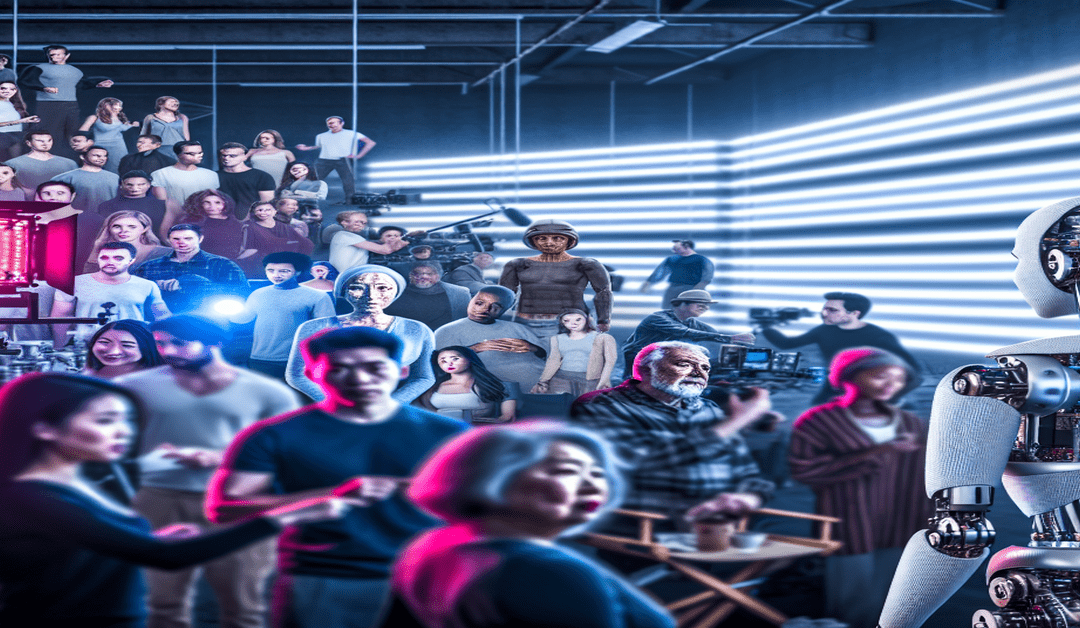Lisa Kudrow’s Criticism of AI De-Aging in Tom Hanks’ Movie “Here” Sparks Debate on Technology’s Impact in Hollywood
In a recent article from Variety, actress Lisa Kudrow voiced her concerns about the extensive use of AI de-aging technology in Tom Hanks’ upcoming movie “Here.” Kudrow’s comments have ignited a broader discussion about the role of advanced technology in the film industry and its potential impact on human employment.
Kudrow’s Perspective: AI as an Endorsement and Threat
Kudrow argued that the significant reliance on AI for de-aging actors in “Here” could be interpreted as an “endorsement for AI.” She raised important questions about the future of human employment in the film industry if AI continues to replace or significantly augment human roles in the filmmaking process.
The actress’s concerns echo the growing apprehension felt by many in the entertainment industry as technological advancements rapidly transform traditional roles and workflows. Kudrow’s criticism highlights the need for a deeper examination of how AI and other advanced technologies can be integrated into the creative process while still valuing and protecting human talent and contributions.
The Debate: Balancing Innovation and Human Creativity
Kudrow’s comments have sparked a lively debate within the film community about the appropriate balance between embracing technological innovation and preserving the essence of human creativity in the artistic process. While some argue that AI can enhance and streamline certain aspects of filmmaking, others fear that an overreliance on technology could lead to a loss of authenticity and emotional depth in performances.
Proponents of AI in filmmaking emphasize its potential to create stunning visual effects, reduce production costs, and allow for greater creative flexibility. They argue that AI can be a valuable tool when used judiciously and in collaboration with human talent, rather than as a replacement.
On the other hand, critics, like Kudrow, worry that the unchecked adoption of AI could lead to a homogenization of content and a diminished role for human actors, writers, and directors. They stress the importance of maintaining the human touch and the unique perspectives that individual artists bring to their work.
The Future of Work in Hollywood
Kudrow’s criticism of AI de-aging in “Here” also raises broader questions about the future of employment in the entertainment industry. As AI and automation become more prevalent, there are concerns about the potential displacement of human workers across various roles, from actors and writers to editors and visual effects artists.
While it is unlikely that AI will completely replace human talent in the near future, the industry must grapple with how to adapt and evolve in response to technological advancements. This may involve rethinking traditional roles, developing new skill sets, and finding ways to collaborate effectively with AI tools.
Finding a Balance: Collaboration Between Human Talent and AI
As the debate surrounding AI in filmmaking continues, it is crucial for the industry to find a balance between embracing technological innovation and preserving the value of human creativity. Rather than viewing AI as a threat, the film community should explore ways to harness its potential in a collaborative and complementary manner.
This could involve using AI to enhance and augment human performances, streamline production processes, and push the boundaries of what is possible in visual storytelling. At the same time, it is essential to ensure that human talent remains at the heart of the creative process and that the unique perspectives and emotional depth brought by individual artists are not lost in the pursuit of technological advancement.
The Need for Ongoing Dialogue and Adaptation
Lisa Kudrow’s criticism of AI de-aging in Tom Hanks’ movie “Here” serves as a catalyst for a much-needed conversation about the role of technology in the film industry. As AI continues to evolve and shape the future of filmmaking, it is crucial for the industry to engage in ongoing dialogue, carefully consider the implications of these advancements, and adapt accordingly.
By fostering open communication, collaboration, and a willingness to embrace change while preserving the essence of human creativity, the film community can navigate this transformative period and find innovative ways to leverage AI in a manner that enhances, rather than diminishes, the art of storytelling.
#AIinFilmmaking #FutureofHollywood #LisaKudrowOnAI
-> Original article and inspiration provided by Zack Sharf
-> Connect with one of our AI Strategists today at Opahl Technologies

